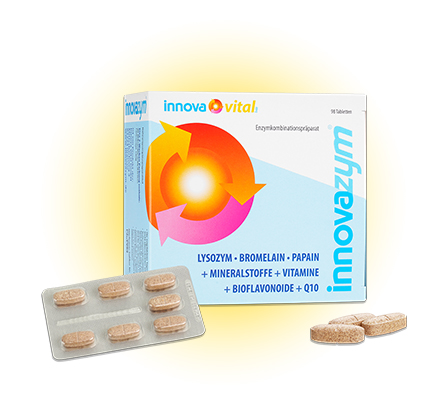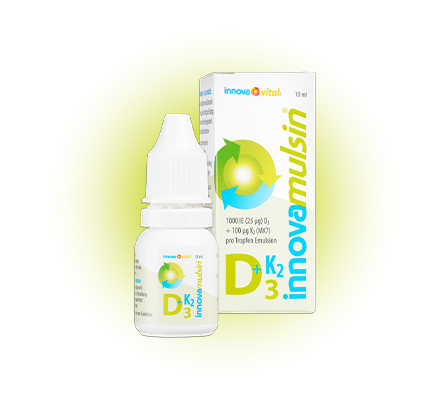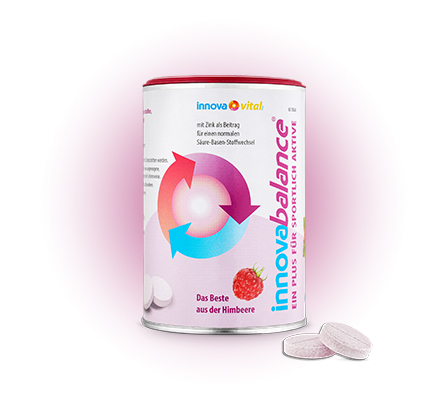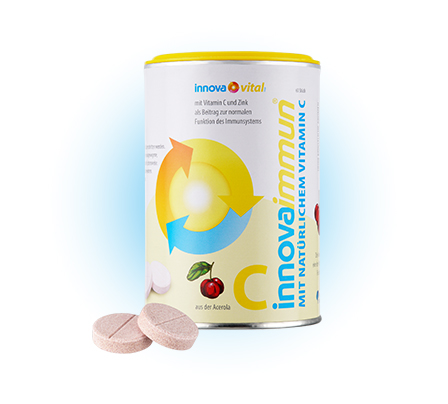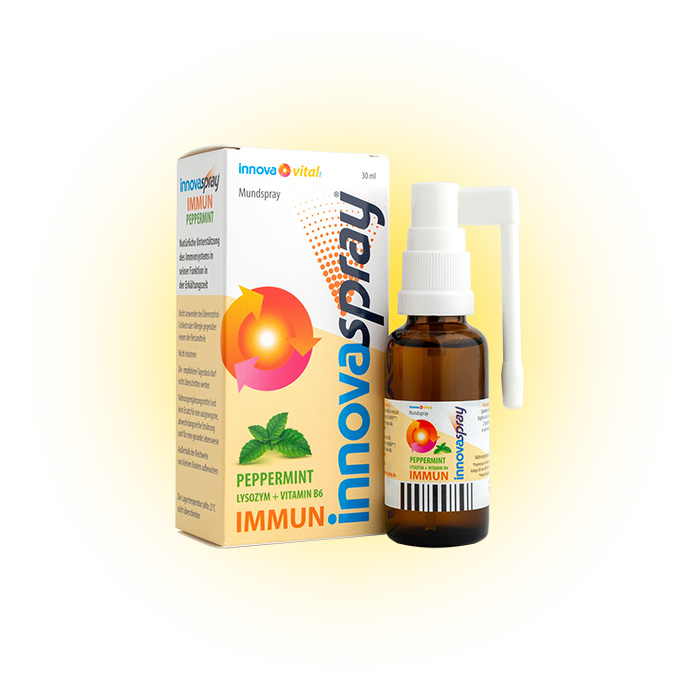Facts
Vitamin A
The term vitamin A refers to all the connections which have the full effectiveness of retinol and its esters. A multitude of substance groups which have a similar effect in the body are counted among vitamin A. Thus, vitamin A comprises retinol itself and approx. 50 carotenoids (pre-stages of vitamin A - often known as provitamins - which can be converted into vitamin A by the body, e.g. beta carotene). Retinol was discovered in 1909.
With enough additional fat intake, approx. 80 % of the liposoluble vitamin A is resorbed (resorption = absorption of substances into biological systems).

Function in the body
Function in the body
Vitamin A (retinol) plays an irreplaceable role in a lot of important processes and functions in the body. It is especially important for:
- the growth of bones and many cells in the body
- the body's defences (immune system)
- the senses: Retinol is important for the eyes (part of the visual pigments of the retina), and also for hearing and smelling
- the growth and maintenance of healthy skin and mucous membranes
- for the development of the placenta
- for the development of embryos
- for reproduction and the creation of the hormone testosterone

Vitamin A in food
Roughly 2/3 of our demand for vitamin C is met by dairy products, meat, offal and eggs. Roughly 1/3 is met by fruit and vegetables (such as apricots, carrots, tomatoes, spinach or broccoli). It is easy for the human organism to absorb beta-carotene if a small amount of fat, such as olive oil or pumpkin seed oil, is taken in at the same time.
Beta-carotene absorbed by the organism is split up in the small intestine and converted into vitamin A (retinol). Vitamin A is stored in the liver and then transported to the somatic cells via the bloodstream.

Vitamin A deficiency
Sight disorders and dry skin can be the consequences of a long-lasting undersupply with vitamin A. Vitamin A deficiency can also lead to night blindness since the light/dark vision is impaired. Another consequence can be an increased susceptibility for infections of the respiratory systems.
Vitamin A therapies are also applied for cases of acne or psoriasis independent of a possible vitamin A deficiency.
We are pointing out that not all of these statements have been approved by orthodox medicine since there is a lack of placebo-controlled studies.


